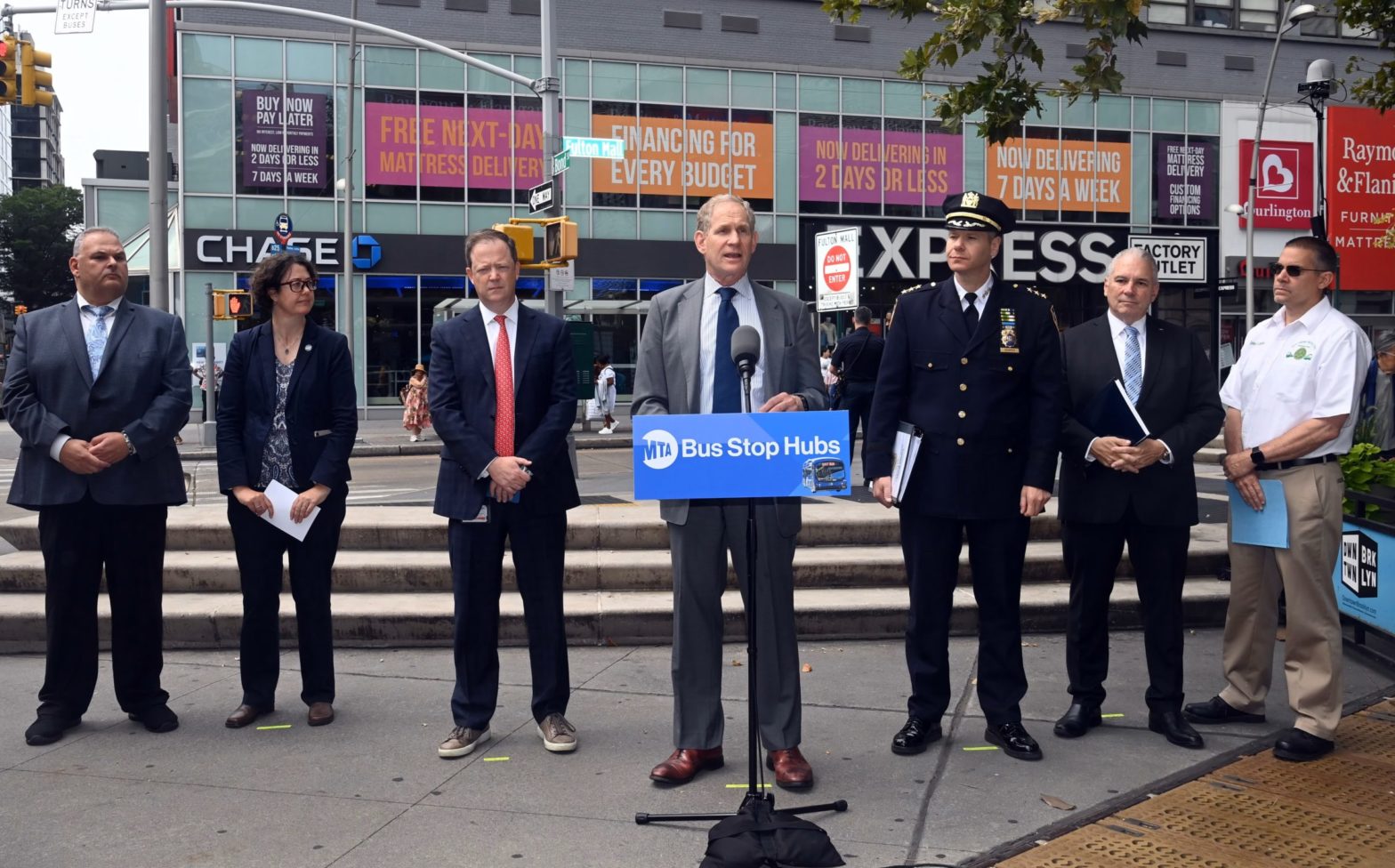
Photo: NY MTA
New York steps up enforcement on transit fare evasion
09 August 2023
by Christopher Carey
New York’s Metropolitan Transportation Authority (MTA) is stepping up efforts to combat revenue loss with the deployment of ‘EAGLE inspectors’ at bus stops and routes with high levels of fare evasion.
The “Bus Stop Hub” approach, announced last week, will see the agency deploying a “high concentration” of EAGLE team inspectors – uniformed and unarmed support staff – to both enforce non-payment and educate people on fare payment options.
“The hundreds of millions of dollars the MTA loses to fare evasion every year could be used to reinvest into the transit system in the form of more service that’s instead totally lost,” said MTA Chair and CEO Janno Lieber.
“It’s not fair to the millions of riders who do the right thing and swipe or tap in every day.”
Millions lost
In 2022, the MTA lost an estimated US$315 million to fare evasion on buses.
Customers can evade bus fares by walking past the farebox without paying, boarding through a back door, short-changing the farebox, or failing to purchase a ticket for the Select Bus Service.
Fines are currently US$100 for non-payment but drivers can be reluctant to challenge customers due to the risk of assault.
The EAGLE team is currently 140 strong, but the MTA plans to hire over 100 new staff within the next year.
The New York Police Department (NYPD) will support the team with enforcement.
“The NYPD and MTA have a longstanding partnership with safety being the top priority,” said NYPD Chief of Transit Michael Kemper.
“Instilling order is key to safety and the perception of safety, and we are in the process of creating a dedicated NYPD unit to support the MTA and its EAGLE teams to deliver riders quickly and safely to their destinations.”
Is AI the answer?
A report released in May by the MTA revealed that overall approximately US$690 million was lost to fare evasion last year.
The report noted that: “AI technology has the potential to help reduce fare evasion” and “measure fare evasion to plan effective and equitable interventions.”
Last month, the agency confirmed that the city had deployed AI surveillance tools in seven undisclosed subway stations in an effort to track how much money the city was losing to fare evasion.
According to documents obtained by NBC News, the agency partnered with Spain-based AI software company AWAAIT to implement the technology, but maintained that the software did not identify those jumping over subway turnstiles to avoid paying fares.
The technology is set to be rolled out to 24 more stations by the end of the year.
Image: MTA









